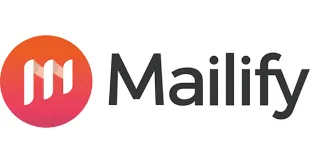Hey there! Are you on the hunt for the perfect email marketing tool? It’s a tough choice, right? Well, you’re in luck because today we’re diving deep into the world of iContact and Mailify. We’ll compare these two giants side by side, helping you figure out which one is the best fit for your email marketing needs. So, grab a coffee, and let’s get started with our first area of comparison.
| iContact | Mailify |
|---|---|
 | |
| G2 Score – 4.1 out of 5 stars | G2 Score – 4.3 out of 5 stars |
| TrustRadius Score -7.7 out of 10 | TrustRadius Score – Nil |
User Experience: Navigating the Platforms
In the realm of email marketing, the user experience (UX) is like the map that guides you through your journey. It can either make your trip smooth and enjoyable or leave you feeling lost in the wilderness. Let’s see how iContact and Mailify fare in terms of UX.
iContact: The User-Friendly Pathfinder
iContact has long been praised for its user-friendly interface. It’s like having a friendly guide in the world of email marketing.
From the moment you log in, iContact welcomes you with an intuitive dashboard. Everything is laid out clearly, so finding what you need is a breeze. It’s perfect for those who want to jump straight into creating campaigns without fussing over complex navigation.
Building emails with iContact is a smooth process, thanks to its drag-and-drop editor. You don’t need to be a tech whiz to create stunning emails. It’s like playing with Lego blocks – simple, fun, and creative.
Mailify: The Sophisticated Navigator
Mailify presents a slightly different approach. It’s like a high-tech GPS system – packed with features for those who know where they’re going.
Mailify’s interface is sleek and modern, but it might take a bit of time to get used to, especially for beginners. It offers more advanced options right off the bat, which is great for seasoned marketers but might be overwhelming for newbies.
Where Mailify really stands out is in its range of features. From advanced segmentation to detailed analytics, it’s like having a multi-tool in your email marketing toolkit. This is ideal for those who are looking to dive deeper into personalized and data-driven email campaigns.
UX: The Deciding Factor
Choosing between iContact and Mailify based on user experience comes down to your comfort level with technology and your specific needs in email marketing.
- If you’re looking for an easy, straightforward experience without a steep learning curve, iContact is your go-to. It’s ideal for beginners or those who prefer simplicity and efficiency.
- On the other hand, if you’re comfortable navigating more complex interfaces and need a wide array of advanced features, Mailify might be the better choice. It’s suited for experienced marketers or those who have specific, sophisticated requirements for their campaigns.
Feature Set: The Building Blocks of Email Marketing
After exploring the user experience, let’s dive into the heart of what makes an email marketing tool powerful – its feature set. Both iContact and Mailify come equipped with a variety of features, but they each have their unique strengths. Let’s unravel these features to see which tool could be the game-changer for your marketing strategies.
iContact: Comprehensive and User-Centric Features
iContact is like a Swiss Army knife for email marketing – it may not be the fanciest tool out there, but it’s packed with everything you need.
iContact offers a wide selection of templates that cater to different styles and industries. Whether you’re crafting a newsletter or a promotional email, you’ll likely find a template that resonates with your brand’s aesthetic. It’s like having a wardrobe full of outfits suitable for every occasion.
Automation is where iContact really shines. Its automation tools allow you to set up email sequences based on subscriber actions, making your campaigns more efficient and personalized. Imagine planting seeds and having a system to water them precisely when needed – that’s iContact’s automation for you.
With iContact, integrating with other tools and platforms is straightforward. Whether it’s CRM software or social media platforms, iContact plays well with others, ensuring your marketing ecosystem is connected and efficient.
Mailify: Advanced Features for the Power User
Mailify, on the other hand, is like a high-tech laboratory for email marketers who love to experiment with advanced features.
Mailify excels in segmentation. You can slice and dice your email list in various ways, ensuring that your messages are highly targeted and relevant. It’s like having a set of sophisticated filters to ensure that only the right people see your message.
Beyond email, Mailify steps into the realm of SMS marketing, offering a more holistic approach to your campaigns. This multi-channel capability allows you to reach your audience through different mediums, increasing the chances of engagement.
Mailify’s analytics are top-notch. You get detailed insights into how your campaigns are performing, allowing you to make data-driven decisions to optimize your strategies. It’s like having a microscope to examine the finer details of your campaign’s performance.
Feature Set: The Choice Is Yours
When it comes to the feature set, your choice between iContact and Mailify will depend on what you’re looking for in your email marketing tool.
- If you prefer a tool that offers a comprehensive, easy-to-use feature set without overwhelming you, iContact is the ideal choice. It’s perfect for those who want efficiency and effectiveness without the complexity.
- For those who need advanced features, detailed segmentation, and multi-channel capabilities, Mailify is the way to go. It’s suited for experienced marketers or those who have specific, sophisticated requirements for their campaigns.
Pricing and Scalability: Balancing Budget and Growth
When choosing an email marketing tool, pricing isn’t just about the immediate cost; it’s about how the tool will grow with your business and how it aligns with your long-term marketing budget. Let’s unpack the pricing structures of iContact and Mailify to see which offers better value for your investment.
| iContact | Base Plan: Pricing starts at around $30/month for 500 subscribers and includes features like drag-and-drop editing, detailed tracking, and autoresponders. Pro Plan: Starting at approximately $45/month for 500 subscribers, adding features like workflow automation, landing pages, and segmentation. Custom pricing is available for higher volume needs and more advanced features. |
| Mailify | Mailify offers a unique credit-based system, where users buy email credits that can be used to send emails. Essential Plan: Includes basic features like email campaigns and forms. Pricing starts at around $69 for 5,000 credits. Premium Plan: Adds advanced features such as SMS marketing, automation, and landing pages. Pricing starts at around $129 for 5,000 credits. Exclusive Plan: Offers bespoke services and support, with pricing available upon request. Note: The number of emails you can send per credit varies based on the plan and additional features. |
iContact: Straightforward and Scalable
iContact’s pricing model is like a staircase, designed to align with your business’s growth and scale at every step.
With iContact, you encounter a tiered pricing structure, where costs are based on subscriber count and feature access. This model is transparent and scalable, allowing you to start small and upgrade as your business and email list grow. It’s akin to starting with a basic phone plan and adding more data as your usage increases.
Even at the lower tiers, iContact offers a solid range of features, making it a cost-effective choice for small to medium-sized businesses. As you move up the tiers, you unlock more advanced features, ensuring that the tool grows alongside your marketing needs.
Mailify: Flexible and Feature-Rich
Mailify’s pricing structure is a bit more like a buffet – you have various options to choose from based on your appetite (or in this case, your business needs).
Mailify offers both pay-as-you-go and subscription plans, giving you the flexibility to choose based on your email volume and frequency. This model is particularly advantageous for businesses with fluctuating campaign schedules or those who prefer not to commit to a monthly fee.
Whether you opt for a pay-as-you-go plan or a subscription, Mailify doesn’t skimp on features. Even the basic plans come packed with advanced capabilities, making it a value-packed option for businesses looking for a comprehensive tool without a hefty price tag.
Weighing the Cost Against Features
Deciding between iContact and Mailify in terms of pricing and scalability comes down to how you foresee your email marketing efforts evolving.
- If you prefer a straightforward, scalable pricing model that aligns with your growing subscriber list, iContact is your match. Its clear, tiered structure ensures you’re not paying for more than you need at each stage of your growth.
- On the other hand, if you value flexibility in pricing and want a feature-rich platform regardless of your business size, Mailify is the way to go. Its varied pricing options cater to different business dynamics, making it ideal for those with varying campaign needs.

Related: Check out our free SEO suite

Integration Capabilities: Connecting Your Marketing Tools
In the digital marketing world, the ability of your email marketing tool to integrate seamlessly with other software can greatly amplify your marketing efforts. Let’s see how iContact and Mailify stack up in terms of integration capabilities, which can be a deciding factor for many businesses.
iContact: Simplified and Essential Integrations
iContact focuses on providing essential integrations that many businesses rely on for their day-to-day marketing activities.
iContact offers direct integrations with popular platforms like Salesforce, Shopify, and major social media channels. These integrations are designed to be straightforward, allowing for a smooth flow of data between your email marketing campaigns and other critical business operations. It’s akin to having a well-connected network where all your devices talk to each other without any hassle.
For a broader range of integration needs, iContact connects with Zapier, providing access to hundreds of other apps. This extends its integration capabilities far beyond its direct connections, offering flexibility for businesses that use a variety of tools in their marketing stack.
Mailify: Advanced Integration Options
Mailify takes a more comprehensive approach to integrations, catering to businesses that require deeper connectivity and more complex solutions.
Mailify boasts an extensive list of direct integrations with CRM systems, e-commerce platforms, analytics tools, and more. These integrations are more in-depth, allowing for advanced automation and data synchronization that can be crucial for businesses with complex marketing strategies.
In addition to its direct integrations, Mailify offers API access for creating custom integrations. This is especially beneficial for businesses with unique systems or specialized needs that standard integrations can’t fulfill.
Choosing the Right Integration Fit
Your choice between iContact and Mailify for integration capabilities should be based on the complexity of your marketing tech stack and your integration needs.
- If your needs are centered around essential integrations that are easy to set up and manage, iContact is a strong choice. Its straightforward integrations, complemented by Zapier connectivity, cover a wide range of common business requirements.
- For more complex and specialized integration needs, Mailify is the better fit. Its extensive range of direct integrations and the ability to create custom solutions via API offer a higher level of customization and control for your marketing ecosystem.
Analytics and Reporting: Unraveling Campaign Insights
In the dynamic world of email marketing, the power of analytics and reporting cannot be overstated. These features are like the compass guiding your marketing ship, helping you understand the effectiveness of your campaigns and navigate towards success. Let’s explore the analytics and reporting capabilities of iContact and Mailify to see which tool offers the insights you need.
iContact: Straightforward and Actionable Analytics
iContact offers analytics that are easy to understand and act upon, making it an excellent choice for those who need clarity and simplicity.
With iContact, you get a reporting dashboard that’s intuitive and straightforward. It provides essential metrics such as open rates, click-through rates, and subscriber growth at a glance. This simplicity is ideal for small to medium-sized businesses or marketers who prefer a no-fuss approach to data.
Beyond basic metrics, iContact provides insights into subscriber behavior, helping you understand how your audience interacts with your emails. This information is crucial for refining your strategy and improving your campaigns’ effectiveness.
Mailify: In-Depth Analytics for Data-Driven Marketers
Mailify steps up the game with more detailed and comprehensive analytics, catering to those who crave deeper data insights.
Mailify’s analytics go beyond standard metrics, offering detailed insights into user behavior, campaign performance, and more. This level of detail is ideal for marketers who rely heavily on data to inform their strategies.
One of Mailify’s standout features is its advanced segmentation and reporting capabilities. You can analyze your campaigns based on various segments, allowing for a granular understanding of different audience responses and behaviors.
Choosing the Right Tool for Analytics
Selecting between iContact and Mailify for analytics and reporting will depend on the level of detail and sophistication you need in your data analysis.
- If you prefer straightforward, easy-to-digest analytics that provide actionable insights, iContact is a great choice. Its simplicity in reporting makes it ideal for those who need clear data for informed decision-making.
- For more advanced, in-depth analytics, Mailify is the way to go. Its comprehensive reporting capabilities cater to marketers who need detailed insights to fine-tune their strategies and understand their audience at a deeper level.
Customer Support and Community Engagement: The Support Behind Your Success
In the realm of email marketing, having robust customer support and an engaged community can make a significant difference. Whether you’re troubleshooting an issue or seeking innovative ideas, the support system behind your chosen email marketing tool is pivotal. Let’s compare the customer support and community engagement of iContact and Mailify to see how they support their users.
iContact: Personalized and Responsive Support
iContact is known for providing a high level of customer support, ensuring that users have the help they need to succeed.
iContact offers multiple channels for support, including phone, email, and live chat. The responsiveness and approachability of their support team are often highlighted by users. This makes a big difference, especially when you’re trying to solve a problem under time constraints or need guidance in using the platform.
In addition to direct support, iContact provides a wealth of educational resources like webinars, tutorials, and a comprehensive knowledge base. These resources are especially valuable for beginners or anyone looking to expand their email marketing knowledge. Moreover, iContact maintains a presence on social media and other platforms, fostering a community of users where experiences and strategies can be shared.
Mailify: Technical Support and a Learning Ecosystem
Mailify also places strong emphasis on customer support, with a focus on providing technical assistance and learning resources.
Mailify’s customer support is noted for its technical depth. The team is equipped to handle more complex queries, making it a valuable resource for businesses running sophisticated email marketing campaigns. Support is provided via email, with detailed, informative responses.
Mailify offers a range of learning materials, including detailed guides, tutorials, and a blog filled with practical marketing advice. They also host community forums and user groups, which are great platforms for exchanging ideas, tips, and best practices with other users.
Choosing Your Support Network
Selecting between iContact and Mailify for customer support and community engagement should align with your preferences and the level of support you anticipate needing.
- If a personalized, responsive support experience is important to you, along with a variety of educational resources, iContact is an excellent choice. Its approachable support and extensive learning materials are well-suited for a wide range of users, from beginners to advanced marketers.
- For those who might require more technical support and enjoy engaging with a community of users for learning and sharing, Mailify is a great fit. Its technical assistance, complemented by an active user community, is ideal for marketers who want to deepen their email marketing expertise.
Conclusion
In conclusion, when it comes to choosing between iContact and Mailify for your email marketing needs, it’s clear that both platforms have their unique strengths and cater to different types of users. iContact shines with its user-friendly interface and straightforward functionality, making it an ideal choice for small to medium-sized businesses or those new to email marketing. Its personalized customer support and extensive learning resources provide an added advantage, especially for users who value ease of use and accessible support.
Mailify, on the other hand, offers a more advanced feature set with detailed segmentation, robust analytics, and multi-channel capabilities, appealing to users who are looking for depth and customization in their email marketing campaigns. Its technical support and active user community are well-suited for those who have more experience in email marketing or require sophisticated tools to manage complex campaigns.
Read next:
- Top 11 Demand Generation Tools to Skyrocket Your Lead-Gen!
- Top 9 Data Virtualization Tools: Which One Should You Pick?
- 19 Best Marketing Automation Tools for e-Commerce: A Deep Dive!
- 15+ Best Sales Prospecting Tools for all Businesses (Compared!)
- 51+ Best Conversion Rate Optimization tools: (Our Picks!)






















Comments are closed.